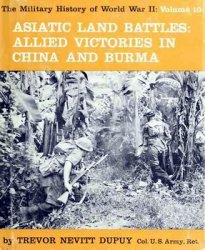One of the defining characteristics of political thought under the Roman Empire was the unremitting concern to define what, precisely, an emperor or monarch was. There were two principal approaches to this problem. The first was to set up simple, binary oppositions between the ideal-typical king and tyrant, and the second was to conceptualize the nature of royal power by means of analogy with other types of authority. The king/tyrant dichotomy was a staple of this tradition. He who rules on behalf of his subjects is a king, according to Dio Chrysostom, while he who rules on behalf of himself is a tyrant (Dio. Or. 3.38-41). The king promulgates just legislation, the tyrant unjust (Men. Rhet. 375). Kings are only cruel out of necessity and reason, while tyrants are cruel for their own pleasure (Sen. Clem. 1.11.4). Kings have many friends, tyrants have no friends (Dio Or. 3.86-116). The list could be substantially extended from Dio’s writings alone (cf. Or. 1.67 ff., 2.67-8, 3.45-8, 4.45). Analogies are even more common. The emperor/monarch is to his subjects as the mind is to the body (Sen. Clem. 1.3.5); a father to his children (Sen. Clem. 1.16.2; Ecph. 82.3-6); a teacher to his pupils (Sen. Clem. 1.16.2); a commander to his soldiers (Sen. Clem. 1.16.2; Dio Or. 3.66-7); a ‘‘king’’ (i. e. queen) bee to the rest of the swarm (Sen. Clem. 1.19.1-3; Dio Or. 3.50); a shepherd to his flock (Dio Or. 1.13, 3.50, 4.45; Aristid. Or. 35.22; Ecph. 82.3-6; Arch. 36.1-5). Closely related to analogies of this sort are those passages in which imperial or monarchic authority is modeled on that of other symbols of power, such as the bull, which uses its awesome strength only on behalf of the herd as a whole (Dio Or. 2.67-8); the sun, which never complains about its toils (Dio Or. 3.82-3); and especially Zeus, the ruler of the heavens (Dio Or. 1.39-41, 3.50; Diotog. 75.8-9). And for those seeking to define not monarchy but tyranny by means of analogy, the master/slave relationship offered an irresistible model (Roller 2001: 213-87).
That the very essence of emperorship, kingship, monarchy, and tyranny was so regularly defined in these ways points to some underlying anxieties about the nature of autocratic rule. One explanation for such anxieties is the possibility that these definitions could be contested, resulting in an ongoing struggle over the most appropriate principles by which rulers should be judged. But there does not seem to have been too much disagreement about what it was that made a ‘‘good’’ or a ‘‘bad’’ emperor, a king or a tyrant. Another possibility is that there was a troubling epistemological uncertainty about the essence of autocracy in the Roman world. If so, these incessant definitions and articulations could be seen as attempts to pin down an elusive quarry. And the stakes of such definitions were high indeed, because the emperor or monarch was not only a model ofauthority, he was also a model for his subjects. In the words of the Tiberian historian Velleius Paterculus, ‘‘The emperor who is best [opti-mus] instructs his citizens to do right by doing it, and even though the emperor is greatest in power, he is even greater through his example’’ (2.126.5). So too Pliny: ‘‘We do not need power [over us] so much as an example. Indeed, fear is an unreliable teacher of what is right. Men learn better from examples’’ (Pan. 45.6). The emperor or ruler as model was in fact a standard conceit (cf. Sen. Clem.2.2.1 ff.;Philo, Mos. 1.160-1; Cass. Dio 52.34.1; Ecph. 80.22-4). Menander even advises his pupils to connect marital bliss and the production oflegitimate children to the behavior ofthe emperor: ‘‘Because of the emperor, marriages are chaste, fathers have legitimate offspring, spectacles, festivals, and competitions are conducted with proper splendor and due moderation. People choose a style of life like that which they observe in the emperor’’ (Men. Rhet. 376; trans. Russell and Wilson 1981). Understanding the essence of imperial or monarchic authority was crucial, then, because it was this authority, in the eyes of contemporaries, that set the basic parameters within which the rest of society operated.
The function of the ruler as a paradigm for his subjects increased the already very high premium placed on the ruler’s personal character. From this concern arose the further anxiety that the royal office corrupted the character of the individual who occupied it. To counter this suspicion, supporters of imperial rule often asserted that the emperor’s character had not been degraded by autocratic power. Aristides, for example, insists that the emperor being celebrated in his encomium did not change after acceding to the throne (Or. 35.9, 26; cf. Plin. Pan. 44.2). This is the context for Marcus Aurelius’ resolution not to let himself become too ‘‘Caesarized’’ or ‘‘dipped in the royal purple’’ (M. Aur. Med. 6.30.1-2). And it gives real force to Tacitus’ observation that Vespasian was the only person whose character actually improved upon becoming emperor (Hist. 1.50.4). One way for observers to assess the character of the monarch qua monarch was through examination of his capacity for friendship - for how could one with a debased character have true friends? The theme of royal friendship is especially pronounced in Dio’s third oration on kingship (Or. 3.86-116, with Konstan 1997b), but it also finds expression in Pliny (Pan. 85), Marcus Aurelius (Med. 1.16.10, 6.30.13 on Antoninus Pius’ friendships), and the late antique panegyrics (Pan. Lat. 3.18.4, 21.2 ff.; 2.16.1 ff.).
But the deepest political anxiety of the imperial period was simply that the emperor might be a bad person who would rule poorly and to the detriment of his subjects. Because the emperor was not formally constrained by laws or institutions, there was good reason for this concern. As a result, a major strand of political thought under the Roman Empire was the development of various strategies for persuading the emperor to rule well. Most arguments were instrumentalist in nature, designed to convince the emperor that ruling well was in his own interests. Both Seneca and Dio Chrysostom claim that a ruler should rule in a virtuous manner because this is the best way to guarantee eternal fame and glory (Clem. 1.10.2, 1.17.3, 1.18.3, 1.20.3; Dio. Or. 1.33, 3.83); vicious rule, by contrast, ensures eternal execration (Plin. Pan. 53.5). For a world in which posthumous reputation was highly valued, these arguments could carry real weight. A related argument pertained to the ruler’s lot after death. Good rulers enjoy a blessed afterlife (Dio Or. 2.75-8; Cass. Dio 52.36.1), while bad ones suffer eternal punishment (Sen. Apoc. 14-15). Among the more prosaic arguments for virtuous rule is Cassius Dio’s claim, embedded in Maecenas’ speech on behalf of monarchy, that citizens are more willing to pay their taxes under a moderate emperor (52.29.2). Sometimes we find the proposition that subjects love good rulers (Dio Or. 1.20, 3.112), but this, too, is normally given an instrumentalist spin, since it is precisely the love of their subjects that conduces to the security of the ruler himself (Sen. Clem. 1.8.6, 1.10.2, 1.13, 1.19.6-8; Dio Or. 3.83; Cass. Dio 52.39.2). As Seneca asks: ‘‘Mercy, then, makes rulers not only more honored, but safer, and is at the same time the glory ofsovereign power and its surest protection. For why is it that kings have grown old and have handed on their thrones to children and grandchildren, while a tyrant’s sway is accursed and short?’’ (Clem. 1.11.4; trans. Basore 1928). Rulers who rule well are also happy, as various authors declare (Sen. Clem. 1.13.2, 1.26.5; Dio Or. 1.45; Cass. Dio 52.39.2), and enjoy good health and pleasant memories as well (Dio Or. 3.60-1, 83). In all these cases it is implied that tyrants experience the opposite of these things. At least one author, Seneca, could base his claim for virtuous imperial rule on the intrinsic good of the virtues themselves - an appropriate stance for a Stoic philosopher. ‘‘No reward is fitting for the virtues,’’ he writes, ‘‘apart from the very virtues themselves’’ (Clem. 1.1.1). Appeals to monarchic self-interest, however, were the norm. But what difference, if any, did such appeals - or the larger discourse on royal power and virtue ofwhich they were a part - really make?




 World History
World History









